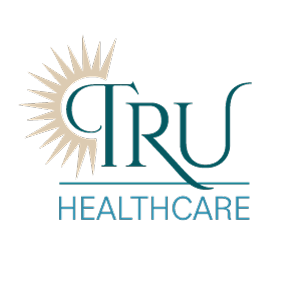For disabled veterans, daily life can bring unique challenges—both physical and emotional. Although veterans are accustomed to a life of perseverance and strength, the support needed to maintain independence at home can’t be underestimated. Home health care for veterans provides tailored solutions that honor their service while addressing real, everyday obstacles in ways that are often overlooked.
Benefits of Home Health Care for Disabled Veterans
Here are five key ways home health care helps disabled veterans live fuller, more dignified lives:
-
Improved Mobility at Home
Mobility challenges are common among disabled veterans, whether due to injuries sustained in service, chronic conditions, or aging. Navigating one’s own home should be a source of comfort—but for many veterans, it’s anything but. Simple tasks like climbing stairs or transferring from a bed to a wheelchair can be daunting without assistance.
Home health care professionals assess each veteran’s living space and recommend modifications to make mobility easier and safer. This can include installing grab bars in bathrooms, providing wheelchair ramps, or rearranging furniture for better accessibility. Additionally, home health aides help veterans with physical therapy exercises to build strength and confidence in their movements. These small changes have a big impact, allowing veterans to regain control over their own space.
-
Help with Daily Personal Care
Everyday grooming tasks like showering, dressing, or even brushing teeth can become significant barriers for disabled veterans struggling with mobility or pain. Home health care steps in to provide discreet, dignified assistance with personal care routines.
Caregivers can be present to assist without making the veteran feel dependent, ensuring that hygiene and health are never compromised. For veterans with limited range of motion or prosthetics, having someone trained to help with these activities reduces frustration and safeguards against injury. It’s empowerment disguised as assistance—a means for veterans to feel clean, confident, and ready to face the day.
Examples of personal care support can include:
- Assistance with dressing, especially for veterans with complicated gear like prosthetics or back braces
- Help with shaving or hairstyling to maintain personal appearance
- Guidance during bathing to prevent slips or falls
-
Managing Medications and Health Needs
Keeping track of multiple medications, appointments, and treatments can be confusing, even for the most organized person. Many disabled veterans juggle prescriptions for pain management, PTSD, or chronic illnesses, and missing a dose can lead to serious health consequences.
Home health care professionals ensure that medications are taken properly and on time. They also assist with managing medical devices like oxygen tanks or monitoring blood pressure and glucose levels. By staying on top of these responsibilities, caregivers help veterans maintain their health with fewer risks and less stress. This trusted support allows veterans to focus on their well-being without feeling burdened by complex medical routines.
-
Preventing Social Isolation
Life at home can become lonely for veterans unable to leave frequently or participate in social activities. Isolation doesn’t just impact mental health—it can also worsen physical conditions and reduce overall quality of life. Home health care providers recognize the importance of fostering connections and often offer companionship alongside their medical and daily assistance.
Caregivers can engage veterans in conversations, encourage hobbies, or accompany them to medical appointments or community events. This human connection is invaluable, helping veterans feel seen, heard, and valued. For many disabled veterans, the presence of a caregiver provides more than physical assistance—it restores emotional well-being.
-
Maintaining Independence with Customized Support
Disabled veterans value independence deeply, and home health care services are designed to respect this. Every plan is customized to the individual, meaning veterans receive only the support they truly need. Whether it’s occasional help with errands or daily medical attention, home health care puts control back into veterans’ hands.
For instance, a caregiver might help a veteran prepare meals on some days, while encouraging them to take charge when they’re able. Similarly, veterans can focus on their strengths—be it paying bills online or spending time with family—while the caregiver assists with more challenging tasks. This tailored support helps veterans strike a balance between their limitations and their strengths, reducing the feeling of dependence.
Call TRU Healthcare Today
Home health care for veterans provides real solutions to everyday challenges disabled veterans face—helping them move safely in their homes, manage personal care, stay on top of medications, avoid loneliness, and maintain independence. It’s a service that doesn’t just treat disabilities—it honors the ability and resilience that veterans embody.
If you or a loved one is a disabled veteran struggling with daily tasks, consider reaching out to a trusted home health care provider. Support doesn’t take away independence—in fact, it ensures a life where service, dignity, and quality of life remain at the forefront.
Call 888.689.3391 or reach out online today.

